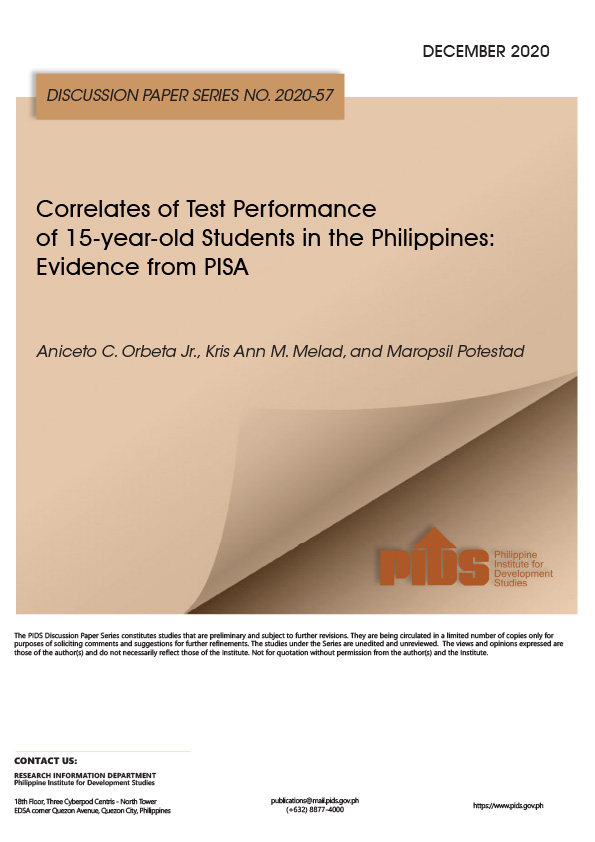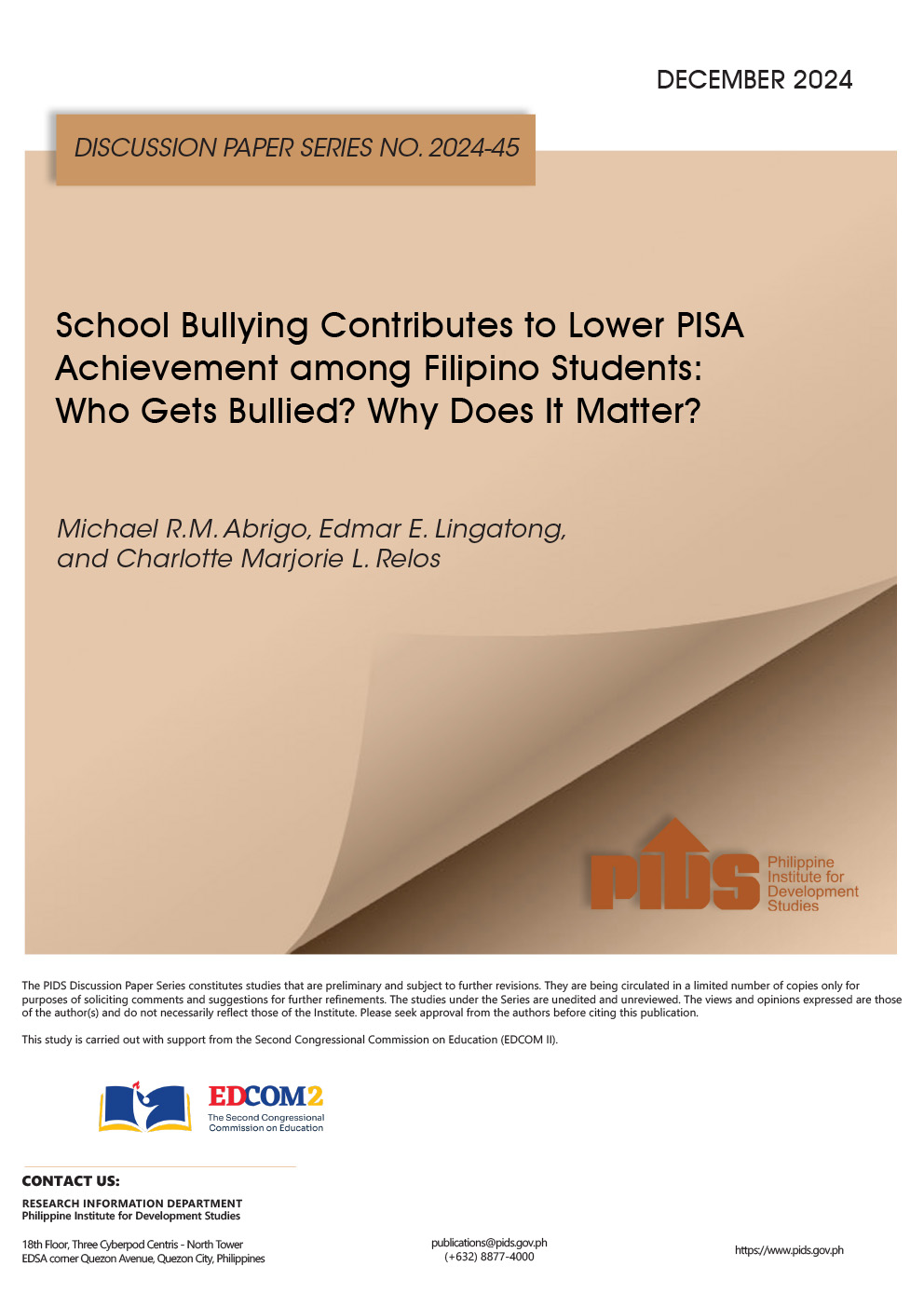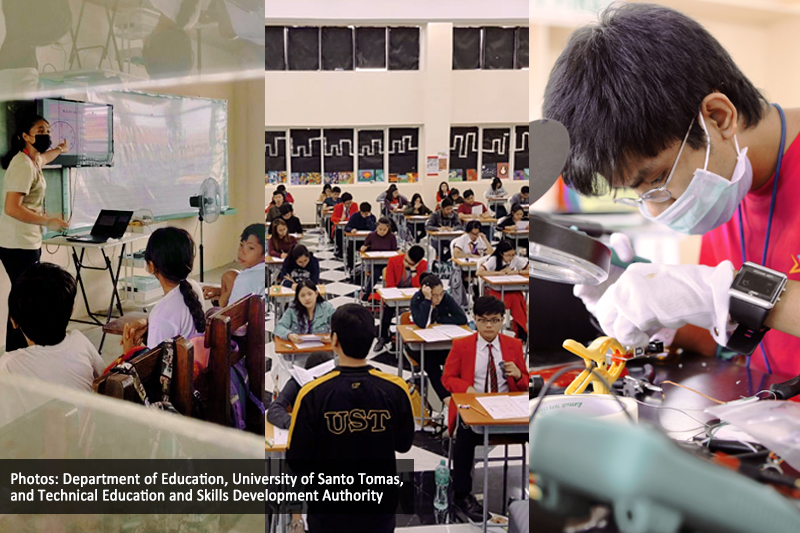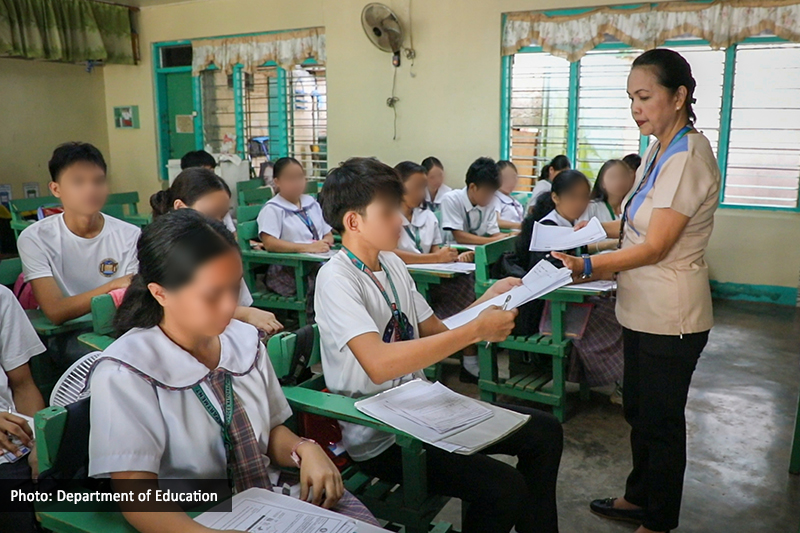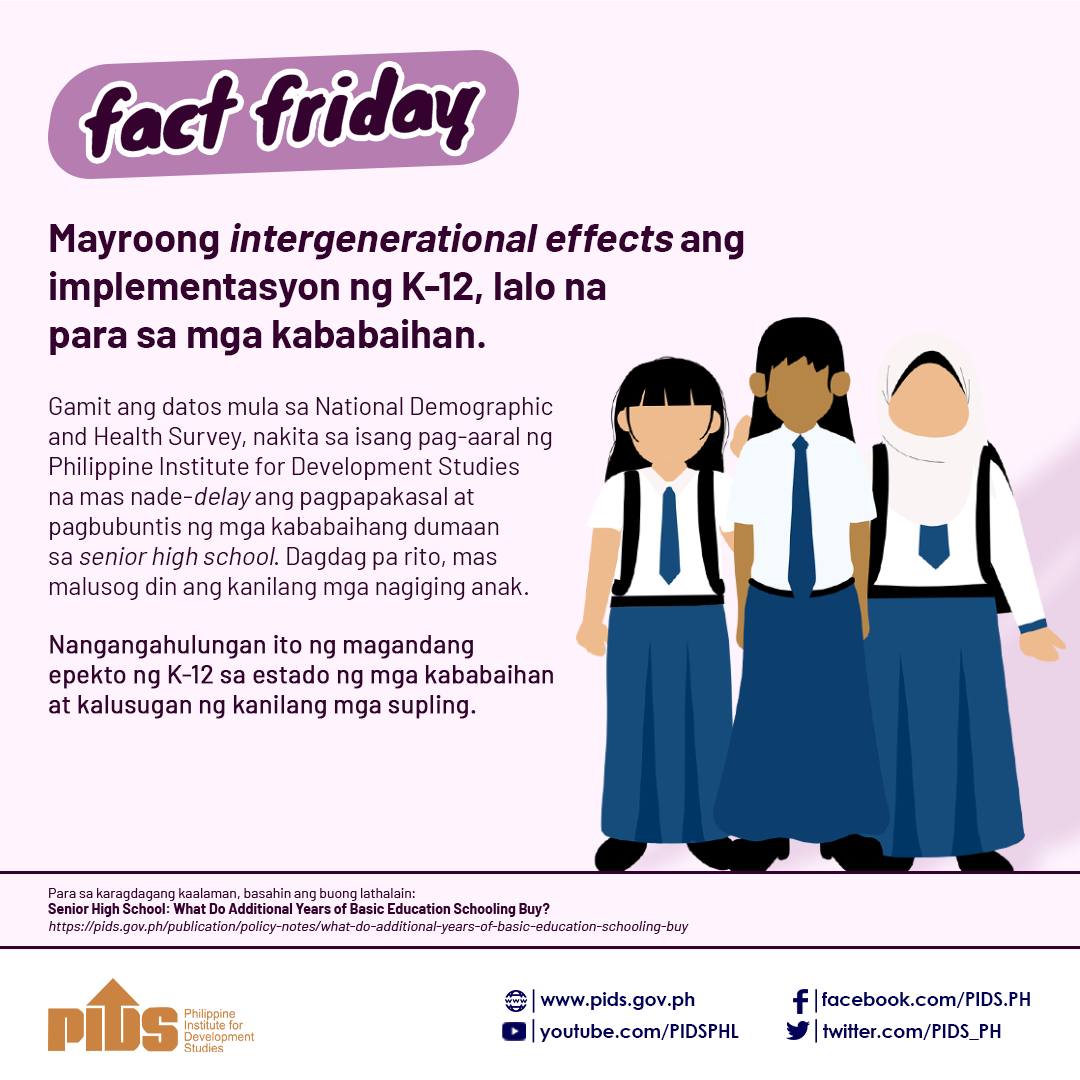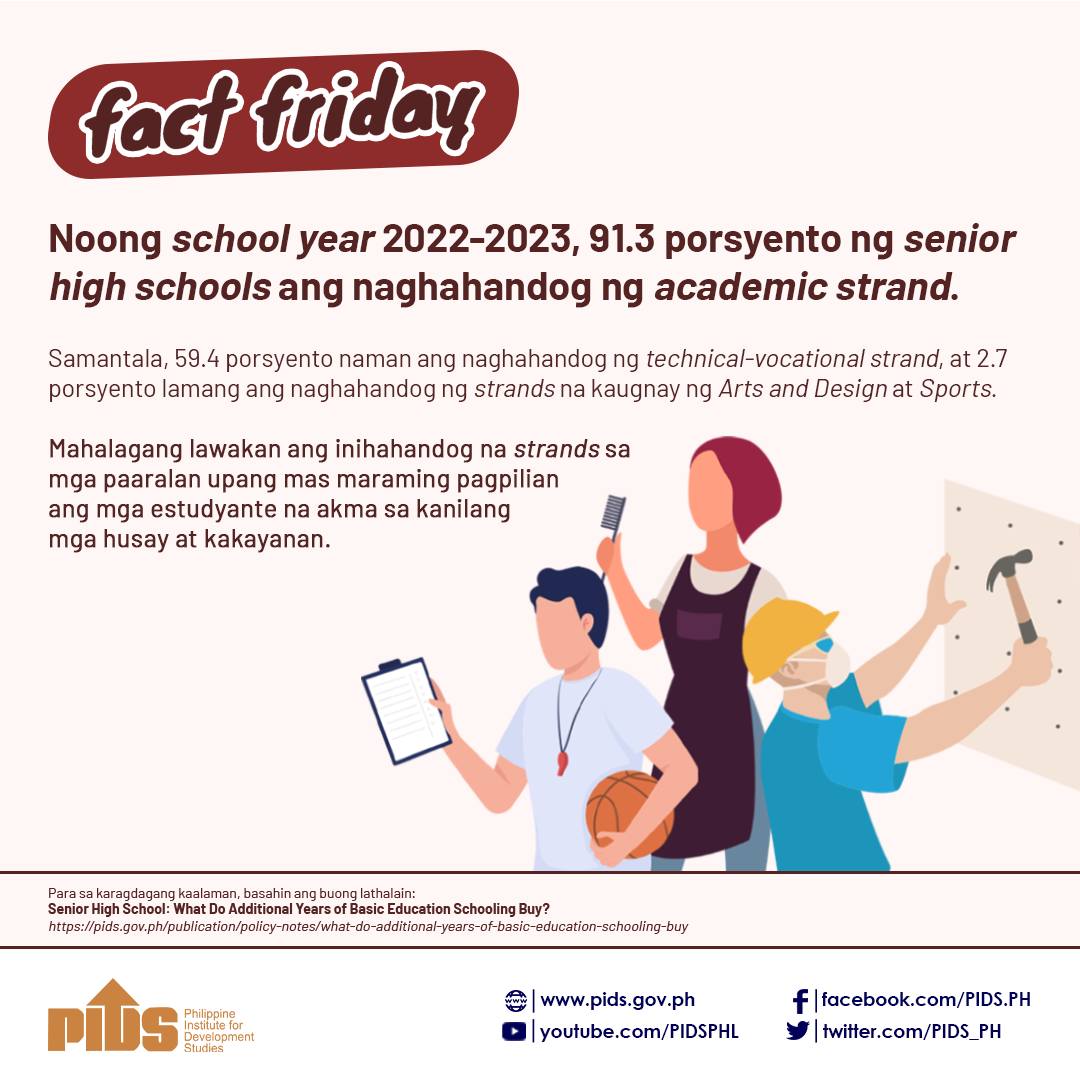To provide evidence on the drivers of the quality of education in the country, this study focuses on the correlates of test performance of 15-year-old students in the Philippines. It aims to quantitatively measure the roles of individual, family, and school characteristics in test performance. It uses the 2018 Program for International Student Assessment (PISA) which include a rich set of student, family, and school characteristics. In addition to the average relationship between the variables provided by ordinary least squares, it also provides an analysis for high and low performing students using quantile regressions. The estimation results show that, in terms of individual characteristics, there is consistent negative correlation between grade repetition, age at start of primary schooling and incidence of bullying and test scores across mathematics, science and reading. For household characteristics, parental occupation and emotional support are positively correlated with test scores. For school characteristics, disciplinary climate provided a consistent positive correlation with test scores. In addition, to these results the paper also found puzzling results that require in-depth studies. The paper also provided recommendations in the light of the estimation results.
Comments to this paper are welcome within 60 days from date of posting.
Email publications@mail.pids.gov.ph.
Citations
This publication has been cited 4 times
- Hazel Chua . 2021. Institutionalize Parenting Amid Covid – Gatchalian. Ikot.ph.
- PageOne. 2021. Gatchalian Seeks Institutionalization Of Effective Parenting Amid Pandemic Woes. PAGEONE.
- RadyoMaN Manila . 2021. Papel ng magulang sa edukasyon ng mga kabataan, dapat paigtingin. RMN Network.
- Senate of the Philippines. 2021. Gatchalian seeks institutionalization of effective parenting amid pandemic woes. Senate of the Philippines.

